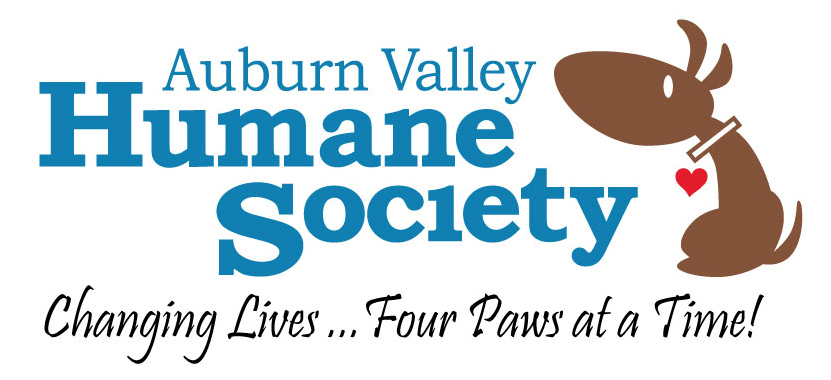Who Will Take Care of Your Animals?
With the expected peak in COVID-19 pandemic still ahead of us, Auburn Valley Humane Society is encouraging pet owners to be prepared in the event of an emergency. It’s important that your emergency plans include your companion animals in case your own health is compromised.
Here are a few tips for creating a pet emergency plan:
1. Know the facts: According to the CDC, “We do not have evidence that companion animals, including pets, can spread COVID-19 to people or that they might be a source of infection in the United States.” However, there is new, limited information that your pet could become infected by a sick human and could spread it to other pets. Out of an abundance of caution, it’s important to keep your pets home, where they are comfortable.
2. Unless you are hospitalized and live alone, keep your companion animals with you: It’s the best place for them to be, and it will bring comfort in these turbulent times. If you are sick, take precautions outlined by the CDC. If you are well, continue to take your dog on walks – it's good for both of you – but remember social distancing and keep 6 feet of distance from other people and pets. If you have questions, consult your veterinarian.
3. If you do become too ill to physically care for your pet or you need to be hospitalized, who can take over for you? Is there anyone else in your home who could help? Maybe a neighbor, friend, coworker or family member could care for your animals? Have two emergency contacts lined up and discuss this with them. If you don’t have anyone who can help, contact Auburn Valley Humane Society for resources. AVHS has a program, Pets in Crisis, that may be able to assist you. We hope for the best, but in case of the worst, AVHS also has a list of rehoming resources and owner support options.
4. Prepare a pet supply kit. It may not seem necessary today, but it will be very helpful if you find yourself in an emergency situation without the ability to track down the proper supplies. Your kit should include the following, as best as you’re able:
Name and contact information for the person who can care for your pet(s)
Name and contact information for your back-up in case the first person is no longer able to help
Food, treats, a leash, toys, your pets’ favorite blanket or bed, and any other supplies needed to care for your pet for at least two weeks
A crate or carrier to transport your pet
Vaccination & Medical records
Collars with ID tags (and don’t forget to make sure your pet’s microchip information is up to date)
Medications and prescriptions, along with a list of instructions
Daily care instructions
Contact information for your veterinary clinic
Click here for a disaster list
By creating a preparedness plan for the unlikely event it becomes necessary to put into motion, you can do your part to ensure you and your pet(s) are comfortable and well cared for in the time of your absence.
For more information on the COVID-19 at AVHS, please visit www.auburnvalleyhs.org.
Want to help homeless and abandoned animals now and in the future?
Monetary donations to Auburn Valley Humane Society are warmly welcomed. Every little bit helps while we continue to struggle through these tough times. With the COVID-19 economic uncertainties, we need your help NOW more than ever. Consider a small automatic monthly donation. Monthly donations provide a reliable gift that we can count on to support the animals in our care! Donate here!

